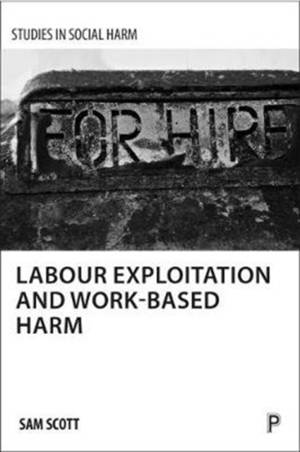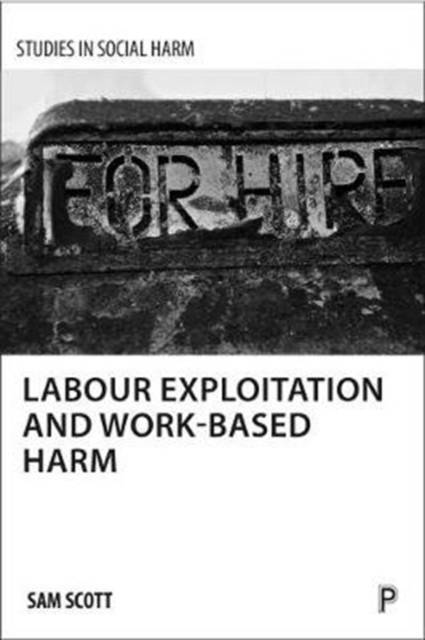
- Afhalen na 1 uur in een winkel met voorraad
- Gratis thuislevering in België vanaf € 30
- Ruim aanbod met 7 miljoen producten
- Afhalen na 1 uur in een winkel met voorraad
- Gratis thuislevering in België vanaf € 30
- Ruim aanbod met 7 miljoen producten
Zoeken
€ 78,95
+ 157 punten
Uitvoering
Omschrijving
EPUB and EPDF available Open Access under CC-BY-NC-ND licence. Labour exploitation is a highly topical though complex issue that has international resonance for those concerned with social justice and social welfare, but there is a lack of research available about it. This book, part of the Studies in Social Harm series, is the first to look at labour exploitation from a social harm perspective, arguing that, as a global social problem, it should be located within the broader study of work-based harm. Written by an expert in policy orientated research, he critiques existing approaches to the study of workplace exploitation, abuse and forced labour. Mapping out a new sub-discipline, this innovative book aims to shift power from employers to workers to reduce levels of labour exploitation and work-based harm. It is relevant to academics from many fields as well as legislators, policy makers, politicians, employers, union officials, activists and consumers.
Specificaties
Betrokkenen
- Auteur(s):
- Uitgeverij:
Inhoud
- Aantal bladzijden:
- 296
- Taal:
- Engels
- Reeks:
Eigenschappen
- Productcode (EAN):
- 9781447322047
- Verschijningsdatum:
- 1/05/2018
- Uitvoering:
- Paperback
- Formaat:
- Trade paperback (VS)
- Afmetingen:
- 155 mm x 231 mm
- Gewicht:
- 408 g

Alleen bij Standaard Boekhandel
+ 157 punten op je klantenkaart van Standaard Boekhandel
Beoordelingen
We publiceren alleen reviews die voldoen aan de voorwaarden voor reviews. Bekijk onze voorwaarden voor reviews.











